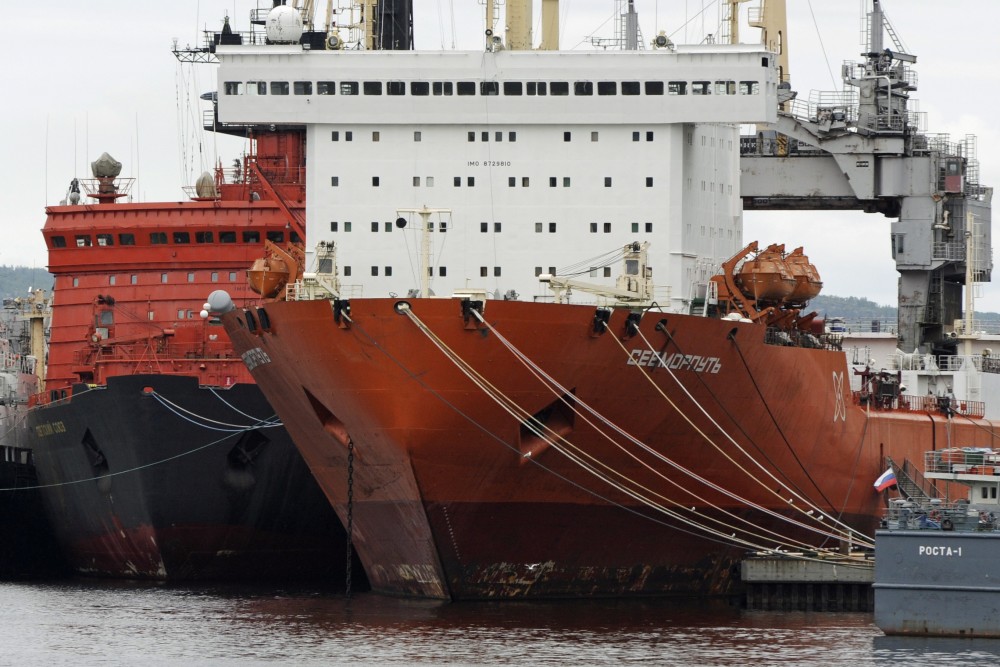A transport crisis looms in the Russian Arctic
Even before sanctions, shipping in the Russian Arctic could be a complex endeavor.

Sanctions placed on Russia in the wake of its invasion of Ukraine could have a significant impact on transportation links in Russia’s Arctic
“As a result of the actions by unfriendly countries, a series of transport and logistics chains have been broken,” Russian President Vladimir Putin said a meeting on Arctic developments earlier this month.
“Undoubtably, this creates certain difficulties in the current situation,” he admitted, but immediately added that “we have all resources and opportunities to quickly find alternative solutions.”
The same message was highlighted in a subsequent meeting on oil and gas developments. According to Putin, “the most serious consequence of the international sanctions is connected with logistical schemes for exports.”
Central Bank Chairwoman Elvira Nabiullina also highlighted the troublesome logistical situation as on the of the most challenging part of new sanctions. In a speech delivered to the State Duma last week, the powerful economist underlined that limitations on imports and exports, as well as logistics, now “require Russian companies to find new partners and new logistics schemes for their production.”
The international sanctions are hitting Russia across the country. But the situation is extraordinary in the Arctic where infrastructure is sparsely developed and shipping dependent on vessels designed for icy conditions.
The Arctic has over the past years been promoted as a top national priority by the Kremlin, and a number of major industrial projects are in the making across the region. Special deliveries of large-size industry modules and components manufactured abroad have been made by foreign heavy loads carriers and a key share of the raw material exports from the region is conducted by foreign shipping companies.
Among the companies that are now feeling the new iron curtain are oil and gas producers like Gazprom and Novatek. Their Arctic projects are developed to meet international demands. However, many of the foreign markets are now disappearing.
Russia is also operating major logistical operations to its many towns and settlements in the region. The so-called Severny Zavoz (northern shipments) includes many thousand tons of shipments delivered to the remotest parts of the Arctic.
In his speech on Arctic developments, Putin made clear that the shipments must be carefully organized, in due time and without faults.
“The Arctic must to the full extent be provided all its needed goods and services,” he underlined and added that this is “a task of special importance.”
He also called for the elaboration of a new law to regulate the shipments.
The concern for the upcoming shipments are not only connected with the new international sanctions, but also by experiences from 2021 when troublesome sea-ice conditions led to a serious disruption of deliveries.
This year, the nuclear-powered container ship Sevmorput will be heavily involved in deliveries, deputy Prime Minister Yuri Trutnev confirms. In August, the vessel will sail on the Northern Sea Route between St.Petersburg and Vladivostok and actively take part in delivery of industrial goods and deliveries to local towns, he told the president.
Trutnev also underlined that Russia does not intend to lower its ambitions for Arctic shipping. By year 2030, as much as 200 million tons of goods will be annually shipped on the route, he explained.
He did not elaborate on how the ambitious target can be reached with the current isolation of Russia from world trade.